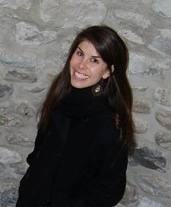It’s good to be back at this intersection between life and God- I’ve missed you all!
Yesterday’s traveling companion home was the last chapter of Parker Palmer’s gem of a book, A Hidden Wholeness. (It has convinced me that in another life I could become a Quaker.) Palmer concludes his final chapter with a poem by Mary Oliver, titled “When Death Comes”:
And therefore I look upon everything
as a brotherhood and a sisterhood,
and I look upon time as no more than an idea,
and I consider eternity as another possibility.
and I think of each life as a flower, as common as a field daisy, and as singular;
and each name a comfortable music in the mouth, tending, as all music does, toward silence,
and each body a lion of courage, and something precious to the earth.
When it’s over, I want to say: all my life I was a bride married to amazement.
I was the bridegroom, taking the world into my arms.
When it’s over, I don’t want to wonder if I have made of my life something particular, and real.
I don’t want to find myself sighing and frightened, or full of argument.
I don’t want to end up simply having visited this world.
The writer of the New Testament book of Hebrews would caution that this world is not our home- that in a sense we are only visitors. I suspect he or she is right in at least one sense- a hunger for eternity, for true and unending life with God, is the source of our wanderlust in this sad, beautiful world which is passing away. But, Oliver is also right: if we are to find our own souls- that “hidden wholeness” to which Palmer gives voice- we must be more than visitors here; our sojourn on this earth is like that of a bride taking the world into her arms, and loving it passionately, without guile.
How will we live today to show that we are more than only mere visitors to this world? Leave your answers below.

